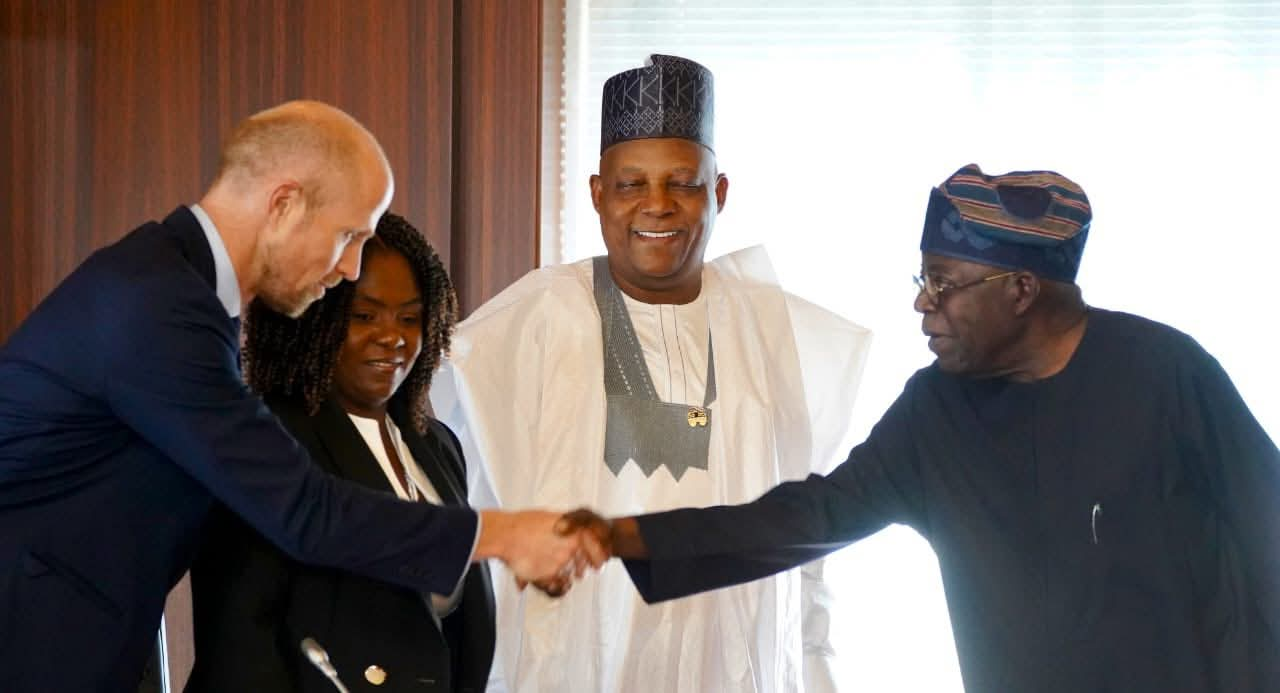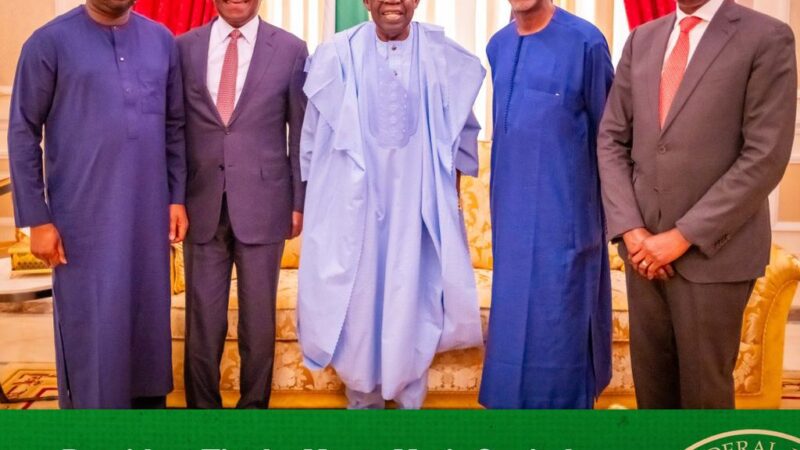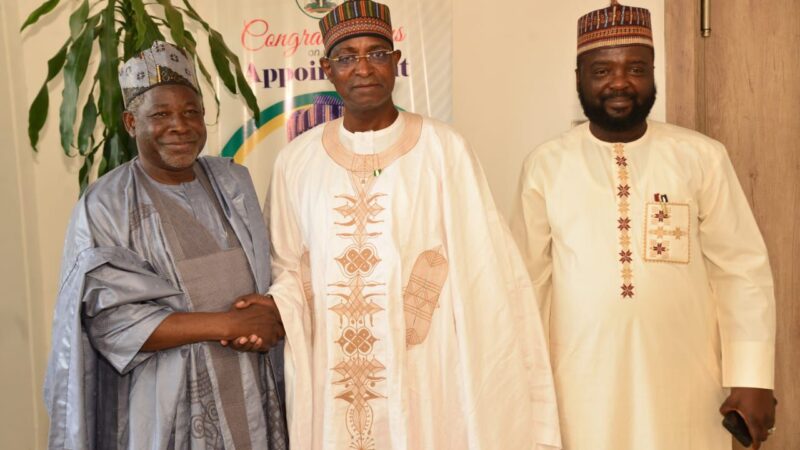*Nigeria, Columbia signs MoU
President Bola Ahmed Tinubu has reaffirmed Nigeria’s commitment to strengthening international partnerships and aligning its foreign relations with evolving global trends in trade, politics, and culture.
Speaking while receiving the Vice President of the Republic of Colombia, Francia Márquez, at the State House in Abuja on Monday, the President noted that global economic volatility and shifting international policies will necessitate new partners for shared prosperity.
He assured the delegation of senior government, business, and diplomatic officials from the South American country that Nigeria will replicate the agreements signed with Brazil on aviation and consular issues with Colombia.
The President stated that the conclusions of all the bilateral meetings and the agreements signed, under the supervision of the Vice President, Sen. Kashim Shettima, will receive speedy attention.
“I believe the Vice President and his team have done the job. Our business opportunities with Colombia have already been enhanced. I support every aspect that you have agreed on.
“Particularly for Colombia, the agreement we entered with Brazil can easily be replicated in aviation, and our diplomatic relations can be enhanced. The Ministry of Foreign Affairs will accelerate that,” he said.
Tinubu urged the business leaders to explore opportunities in Nigeria’s oil and gas sector and agriculture.
He added that Nigeria’s youthful and growing population presents a good market and a skilled workforce to bolster investments.
In his remarks, Vice President Shettima said the visit of the Colombian counterpart would rekindle ancestral connections disrupted by slavery and colonialism, positioning both nations for a prosperous partnership. He highlighted the political and cultural similarities that will foster healthy economic collaboration.
The Vice President of Colombia highlighted several areas for strengthening bilateral relations, including aviation, visas, political consultations, cultural exchanges, and trade.
“As the first black Vice President of Colombia, I am extremely delighted to lead this visit to the land of our ancestors. Our ancestors were taken away from Africa centuries ago,” she said.
Marquez said her visit will kick-start a long-lasting relationship built on substantial cultural similarity and heritage.
She assured that relations with Nigeria would benefit both countries, particularly in areas such as social justice, gender equality, and inclusivity.
“We have had a meeting with the business leaders in aviation on the need to start direct flights to Colombia,” the Vice President added.
Marquez said that Nigeria’s leadership role in Africa and the African Union’s role in restoration and reparation will enhance relations with Latin America and the Caribbean.
During the visit, Nigeria and Colombia signed a Memorandum of Uunderstanding (MoU To Strengthen Political, Economic, Bilateral Ties
*VP Shettima urges both nations to transform potential into tangible economic gains beyond tariff barriers
*Nigeria remains strategic market for Colombia, says VP Márquez
The governments of Nigeria and Colombia have signed a historic Memorandum of Understanding (MOU) on political consultations, opening a new and significant chapter in relations between both countries.
The MOU signed during the Nigeria-Colombia Bilateral Meeting and Business Forum at the Presidential Villa was appended by Nigeria’s Minister of Foreign Affairs, Amb. Yusuf Tuggar, and the Deputy Minister, Multilateral Affairs, Ministry of Foreign Affairs, Colombia, Mauricio Jaramillo Jassir.
Jassir explained that on the bilateral front, the MoU relates to “very frequent political dialogue” with Nigeria and visa approvals for its diplomats, thereby making it easier for its diplomats to visit Nigeria.
Speaking at the plenary session of the Nigeria-Colombia Business Forum, the Vice President Shettima implored both countries to take advantage of their abundant potential and turn them into palpable and substantial economic gains.
This, he said, should be driven by the private sectors of the two nations, exploring new opportunities, deepen partnerships, and address common challenges.
“We cannot achieve that unless we compare our differences and similarities, as well as our resources and potential. This is a practical way to propel trade and investment, improve agriculture, foster culture, and exchange ideas that will mutually benefit our countries.
“The private sectors of our two nations are therefore urged to take advantage of the abundant potential of our countries and transform them into tangible economic gains,” the Nigerian VP said.
Shettima also noted that while the skepticism about the global economy, and its unpredictable politics that routinely underbids is redefining trade patterns, Nigeria had since deemed it necessary to diversify and expand its exports beyond crude oil, with agriculture, minerals, and manufactured products as some of the new areas of concentration.
He said, “The tariffs that confront our exports in other parts of the world are a reminder of the danger of dependence on a narrow base.
“For Nigeria, this is a call to diversify our exports beyond crude oil, expanding into agriculture, minerals, and manufactured products. I believe that Colombia too is bound by the determination to expand its economy beyond the bounds of tariff barriers.”
In response to the global constraints, Shettima explained that Nigeria is working towards elevating its agriculture from subsistence to mega-business, as well as transforming smallholders into global conglomerates.
He continued: “As a country, we are investing in innovative technologies for livestock breeding, developing machinery, producing chemical-based products such as fertilizers, herbicides, and pesticides, and creating a strong supply chain. This is also an area where partnerships with Colombia will be vital.
“We must prioritise sectors that are natural pillars of our economies. In agriculture, we share comparative strengths in cocoa, coffee, and tropical fruits. In energy, Nigeria remains a leader in oil and gas, while Colombia has potential in coal and renewable energy.
“In manufacturing, from textiles to machinery, both nations can collaborate to build capacity, exchange knowledge, and attract the kind of investments that secure jobs and prosperity for our peoples.”
To take advantage of the opportunities that abound in their domains, the Nigerian Vice President identified three things both Nigeria and Colombia must do, including monitoring “global trade policies to adapt swiftly.”
He said both nations must diversify exports to reduce dependence on single products, and “create a business environment attractive enough for foreign investors,” adding that by pursuing these, both nations “can turn shifting tides into shared prosperity.”
On cultural ties between both nations, Senator Shettima said, “Our practical roadmap to the future is to acknowledge that culture is a bridge for innovation, economic development, and mutual prosperity.
“Nigeria’s creative sector remains an engine for unleashing the potential of our teeming youth population. Reinforcing our connections in culture, education, science, and technology is fundamental for building a resilient and globally competitive creative economy.
“It is therefore time to collaborate in capacity building, skill development, cultural exchange, digital innovation, and intellectual property protection. We must extend our acquaintance to each other’s literature, languages, music, films, arts, and festivals.”
For her part, Mrs. Márquez, said her team was in Nigeria to reaffirm bilateral relations, noting that the country remains a strategic market for Colombia.
She noted that Colombia is currently exporting to Nigeria, particularly in the field of leather, adding that she seeks to explore new paths with Nigeria in renewable energy.
She added that similarly, “we can make progress in higher education” by connecting Colombian and Nigerian youths.
According to her, the business meeting in Nigeria will allow Nigeria to explore cooperation opportunities and work together in the fields of technology and services for both countries’ people.
She thanked the Nigerian government for the hospitality, assuring, “We will work together for social development, social justice, peace, and security for our people.”
Earlier, Nigeria’s Minister of Foreign Affairs, Yusuf Tuggar, maintained that Colombia’s history is tied to Nigeria, particularly during the slave trade when Nigerians found their way to Colombia.
He said the development is an opportunity to strengthen historical and economic ties between both countries and bolster trade, adding that there “is room for improvement” in areas such as agriculture, hydrocarbons, and pharmaceuticals.
Also, the Deputy Minister of Multilateral Affairs, Ministry of Foreign Affairs, Colombia, Mauricio Jaramillo Jassir, said it is very important for Colombia to diversify its relationship with the world, especially with Nigeria.
For the Colombian side, he stressed the importance of exploring its relations with Nigeria, maintaining that Nigeria remains the best gateway to reinforce bilateral cooperation with Africa, expressing optimism that the Nigerian side will explore Colombia’s strategic position in South America.
On the bilateral front, he said two Memoranda of Understanding (MOUs) were of interest to Colombia: to have “very frequent political dialogue” with Nigeria and visa approvals for its diplomats so it will be easier for its diplomats to visit Nigeria.
Presenting investment opportunities in Nigeria, the Deputy Director of the Nigerian Investment Promotion Commission, Mr. Emmanuel Longza, said Nigeria is a strategic location with a population of 250 million, very rich in natural resources, while investors can enjoy tax duty waivers among other incentives.






